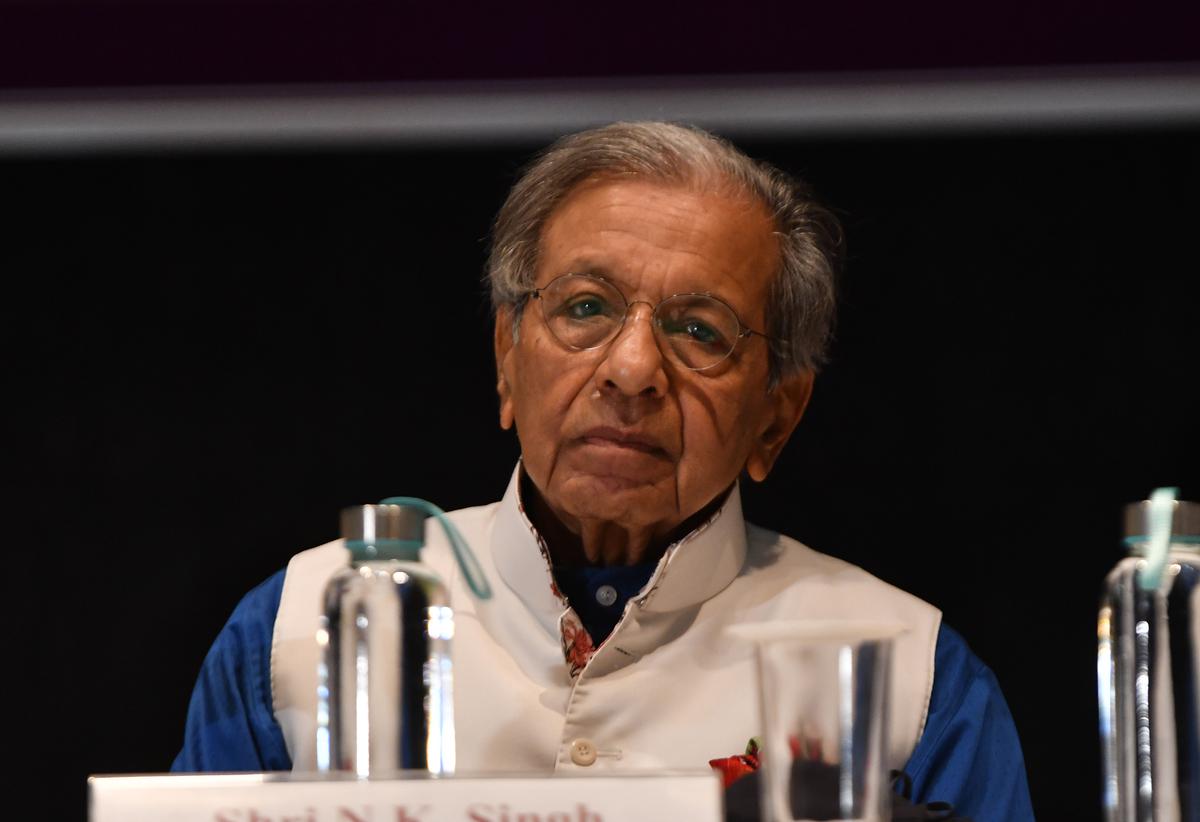The Sixteenth Finance Commission will be established soon, with the Finance Ministry likely to announce the terms of reference.

What is the Finance Commission?
- Under Article 280 of the Indian Constitution, the President of India established the Finance Commission (FC) in 1951.
- It was established to define the financial relationships between the Indian central government and the individual state governments.
- The Finance Commission (Miscellaneous Provisions) Act of 1951 further defines the terms of qualification, appointment, and disqualification, as well as the Finance Commission’s term, eligibility, and powers.
- The FC is appointed every five years, according to the Constitution, and consists of a chairman and four other members.
- Since the establishment of the First FC, significant changes in the Indian economy’s macroeconomic situation have resulted in significant changes in the FC’s recommendations over the years.
Constitutional Provisions
- Several provisions to bridge the fiscal gap between the Centre and the States are already enshrined in the Indian Constitution, including Article 268, which allows the Centre to levy duties but empowers the States to collect and retain them.
- The scope of the commission is defined in Article 280 of the Indian Constitution:
- Who will be included: The President will form a finance commission within two years of the Constitution’s inception, and then at the end of every fifth year or earlier, as deemed necessary by him/her, with a chairman and four other members.
- Qualifications: The requisite qualifications for appointment as members of the commission, as well as the procedure for selection, may be determined by Parliament by law.
- Referencing terms: The commission was formed to make recommendations to the president regarding the distribution of net tax proceeds between the Union and the states, as well as the allocation of the same among the states themselves. The finance commission is also responsible for defining the Union’s and the states’ financial relations. They also deal with the unplanned revenue resource devolution.
Important duties
- Devolution of taxes: The distribution of net tax proceeds between the Center and the States, based on their respective contributions to the taxes.
- Grants-in-aid: Determine the factors that govern Grants-in-Aid to states, as well as the magnitude of the same.
- Augment state fund: To make recommendations to the president on the measures required to augment the Fund of a State to supplement the resources of the state’s panchayats and municipalities based on the recommendations of the state’s finance committee.
- Any other matter related to it by the president in the interest of sound finance.
Members of the Finance Commission
- The Finance Commission (Miscellaneous Provisions) Act of 1951 was passed to give the finance commission a structured format and to bring it up to world standards.
- It established rules for the qualification and disqualification of commission members, as well as their appointment, term, eligibility, and powers.
- The Chairman of a finance commission is chosen from among those with public-sector experience. The other four members are chosen from among those who are or have been high court judges, have knowledge of government finances or accounts, have experience in administration and financial expertise, or have special knowledge of economics.
The 16th FC faces significant challenges
- Cross-over with GST Council: The coexistence of another permanent constitutional body, the GST Council, would be a significant new challenge for the 16th FC.
- Conflict of interest: The GST Council’s decisions on tax rate changes may affect the Commission’s revenue calculations for sharing fiscal resources.
- The Commission’s recommendations on states’ share of tax devolution and the trajectory for fiscal targets are usually taken into account by the Centre, while most other suggestions are ignored.
Major outstanding recommendations
- Creating a Fiscal Council: The 15th FC proposed establishing a Fiscal Council where the Centre and States would collaborate to address India’s macro-fiscal management challenges, but the government has indicated that it is unnecessary, he noted.
- Creating a non-lapsable fund for internal security: While the centre agreed to establish a non-lapsable fund for internal security and defence “in principle,” its implementation remains to be determined.
Source: https://www.thehindu.com/news/national/process-to-set-up-sixteenth-finance-commission-set-to-kick-off-soon/article66451389.ece
